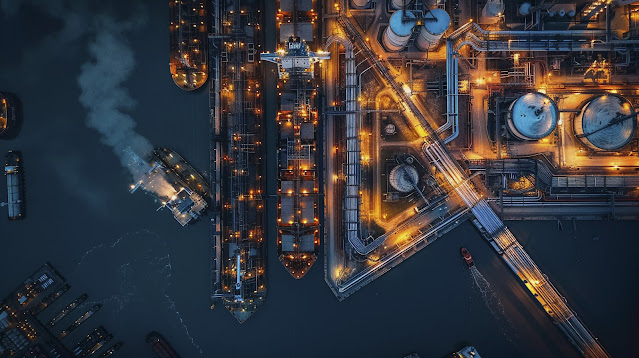Challenges associated with iron ore trading in India
India
not only produces a large amount of iron ore but also consumes a significant
amount of iron in the world. Iron ore as a commodity has played a role in the
steel industry as well as other aspects across the globe. It is not only a
significant contributor to the economy, but also supports various industries
and has much potential. The iron ore trading sector faces several persistent
challenges. These challenges tend to impact its growth as well as efficiency
issues. It impacts the industry in a prominent way and shapes the industrial
and economic landscape. Let us better understand some of these challenges and
gain a better idea of the relevant aspects of addressing them.
Supply
chain inefficiency
l It can be one of the major challenges when it
comes to iron ore trading. It is mostly caused by inefficiency or fragmentation
in the supply chain process. Transporting ores now from mines to processing
plants and eventually to the market is a multi-step process with multiple
intermediaries, logistical layers and infrastructure. Limitations in
connectivity, limited port capacity, inadequate facilities for warehousing and
more result in high costs.
l These inefficiencies tend to reduce the
competitiveness of Indian iron ore traders. People can face losses due to poor
handling and storage conditions. This leads to a reduction in the quality as
well as the wastage of the material, which directly impacts the profit gain.
l Iron ore trading company in india today are investing in modernising their
approach when it comes to transportation as well as warehousing. With dedicated
freight corridors, better connectivity to mining regions and expanding handling
capacities. Various changes are being put in place. The digital supply chain
management systems can also enhance coordination, transparency and efficiency
across the trading process.
Pricing
and relevant factors
l Pricing for ores is yet another challenge common
in the iron ore trading industry. It is sensitive to fluctuations in global and
domestic markets, and the demand for finished products such as steel also
influences international demand.
l It is impacted by geopolitical factors, currency,
exchange rates, and much more, with various other factors like policies, export
duties, high input, cost, and more. With the many variables, the prices become
more unpredictable.
l This can impact the way a trader plans and
forecasts the approach to trade, and it impacts their financial buffer to
absorb losses. This instability can deter long-term investments in this sector
and impact the stability of contracts and supply agreements. An improvement in
the regulatory framework to stabilise policies associated with it can help in
these aspects and increase the predictability of the sector.
Conclusion
Mining equipment companies in Odisha,
such as Naaraayani Minerals, have provided excellent services associated with
Iron ore trading for years. Now, they have established themselves as a
well-known iron ore trader in the market. While they navigate these challenges
effectively with their other services, such as mining and heavy equipment
management, they are making a difference. They embrace innovation and improve
sustainability with a focus on their standards. Visit their website
today to be better informed about all that they care for and their vision when
it comes to the future of mining.




Comments
Post a Comment